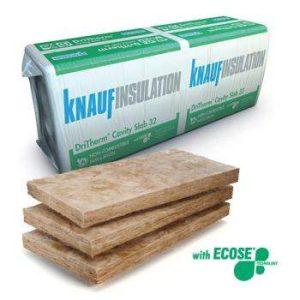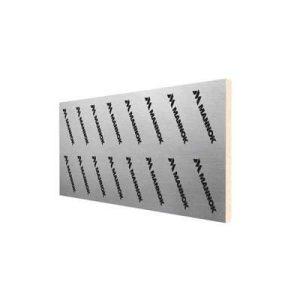- 1067 H x1067 WIDE(0)
- 1220 H x 915 WIDE(0)
- 1981MM x 457MM x 35MM(0)
- 1981MM x 533MM x 35MM(0)
- 2040MM x 626MM x 40MM(0)
- 450mm Long 50x50mm(0)
- 600mm Long 75x75mm(0)
- 762mm Long 100x100mm(0)
- 915 H x 1067 WIDE(0)
- 915 H x 915 WIDE(0)
- 1981MM x 711MM x 35MM(0)
- 2040x926x44(0)
- 1981x457x35mm(0)
- 1981x610x45mm(0)
- 1981x762 mm(0)
- 1981x838 mm(0)
- 1981x915 mm(0)
- 196891x1220x35mm(0)
- 1981x1067x35mm(0)
- 1981x1168x35mm(0)
- 1981x1168x44mm(0)
- 1981x1219x35mm(0)
- 1981x1220x35mm(0)
- 1981x1372x35mm(0)
- 1981x1524x35mm(0)
- 1981x686x45mm(0)
- 1981x762x45mm(0)
- 1981x838x45mm(0)
- 1981x915x44mm(0)
- 1981x915x45mm(0)
- 1981 X 610 X 35MM(0)
- 1981 x 686 x 35mm(0)
- 2032x813x45mm(0)
- 1981mm x 915mm x 35mm(0)
- 1981MM x 381MM X 35MM(0)
- 198x458x35mm(0)
- 1981x535x35mm(0)
- 1981x610(0)
- 198x610x35mm(0)
- 1981x610x35 mm(0)
- 1981x610x35MM(0)
- 1981MM x 610MM x 35MM(0)
- 1981x610x44mm(0)
- 1981MM x 610MM x 44mm(0)
- 1981MM x 686MM x 35MM(0)
- 1981MM x 686MM x 44MM(0)
- 1981x711x35mm(0)
- 1981x762x35mm(0)
- 1981x762x35 mm(0)
- 1981MM x 762MM x 35MM(0)
- 1981MM x 762MM x 44MM(0)
- 2032MM x 813MM x 35MM(0)
- 2032MM x 813MM x 44MM(0)
- 1981MM x 838MM x 35MM(0)
- 1981MM x 838MM x 44MM(0)
- 1981x838x54mm FD60(0)
- 1981x2135x44mm(0)
- 2040x726x44mm FIRE DOOR(0)
- 2135x1981x44mm(0)
- 2135x2135x44mm(0)
- 2040MM x 526MM x 40MM(0)
- 1981x381x35mm(0)
- 198x533x35mm(0)
- 1981x533x35mm(0)
- 1981x533x35 mm(0)
- 1981x610x44 mm(0)
- 1981x686x35 mm(0)
- 1981x686x35mm(0)
- 1981x686x44mm(0)
- 1981x686x44 mm(0)
- 1981x762x44 mm(0)
- 1981X762X44MM(0)
- 1981MM x 762MM x 45MM(0)
- 1981x838x35mm(0)
- 1981x838x35 mm(0)
- 1981x838x44mm(0)
- 1981x838x44 mm(0)
- 1981MM x 838MM x 45MM(0)
- 2040x526x35 mm(0)
- 2040x526x40mm(0)
- 2040MM x 526MM x 44MM(0)
- 2040x626x40 mm(0)
- 2040x626x40mm(0)
- 2040x626x44 mm(0)
- 2040x626x44mm(0)
- 2040MM x 626MM x 44MM(0)
- 2040x726x40 mm(0)
- 2040MM X 726MM X 40MM(0)
- 2040x726x40mm(0)
- 2040x726x44mm(0)
- 2040MM x 726MM x 44MM(0)
- 2040x726x44 mm(0)
- 2040x826x40 mm(0)
- 2040x826x40mm(0)
- 2040MM x 826MM x 40MM(0)
- 2040x826x44mm(0)
- 2040MM x 826MM x 44MM(0)
- 2040x926x40 mm(0)
- 2040x926x44 mm(0)
- 2040MM x 926MM x 44MM(0)
- 2040MM x 926MM x 40MM(0)
- 2134 x 915 x 44 mm 1/2 HOUR(0)
- 2134 x 915 x 54 mm 1 HOUR(0)
- 2440 x 1220 x 44 mm 1/2 HOUR(0)
- 400x400x440mm HIGH(0)
- 1981x686(0)
- 1981x711x35 mm(0)
- 1981MM x 762MM x 40MM(0)
- 1981x762(0)
- 1981x838(0)
- 1981 X 915 X 44 mm(0)
- 1981 x 915 x 44MM(0)
- 1981x915(0)
- 1981 x 1168 x 44 mm(0)
- 2032MM x 813MM x 45MM(0)
- 2032x813(0)
- 2032x813x35 mm(0)
- 2032x813x35mm(0)
- 2032x813x44 mm(0)
- 2032x813x44mm(0)
- 2040x826x44 mm(0)
- 2040x926x40mm(0)
- 2040x926x44mm(0)
- 2057 X 838 X 44MM(0)
- 2082 X 863 X 44MM(0)
- 2083 x 864 x 44MM(0)
- 2083 x 864 x 45MM(0)
- 2133 X 914 X 44MM(0)
- 2134 X 914 X 44MM(0)
- 2134 X 915 X 44MM(0)
- 2135 X 915 X 44MM(0)
- 2135 X 915 X 45MM(0)
- 1981MM x 381MM(0)
- 1981MM x 610MM(0)
- 1981MM x 686MM(0)
- 1981mm x 914mm x 35mm(0)
- 19681MM X 915MM X 35MM(0)
- 1981x915x35mm(0)
- 1981mm x 1067mm x 35mm(0)
- 1981mm x 1167mm x 35mm(0)
- 1981mm x 1168mm x 35mm(0)
- 1981mm x 1219mm x 35mm(0)
- 1981mm x 1220mm x 35mm(0)
- 1981mm x 1371mm x 35mm(0)
- 1981mm x 1372mm x 35mm(0)
- 1981mm x 1524mm x 35mm(0)
- 1981MMX457MMX35MM(0)
- 1981MMX610MMX35MM(0)
- 1981MMX686MMX35MM(0)
- 2.7(0)
- 1825mm(0)
- 2440mm(0)
- 3.9 m(0)
- 3050mm(0)
- 5.4 m(0)
- 3.35 m(0)
- 2.4 m(0)
- 3.0 m(0)
- 3.6 m(0)
- 4.2 m(0)
- 4.5 mtr(0)
- 5 mtr(0)
- 4.8 m(0)
- 5.1 Mtr(0)
- 50 mtr(0)
- 2.1,2.4,2.7,3.0,3.3,3.6,3.9,4.2,4.5,4.8,5.1,5.4(0)
- 2.4(0)
- 3.0(0)
- 3.6(0)
- 4.2(0)
- 4.8(0)
- 5.4(0)
- 6.0(0)
- 13mm(0)
- 20mm(0)
- 25mm(0)
- 30mm(0)
- 32mm(0)
- 35mm(0)
- 38mm(0)
- 40 mm(0)
- 40mm(0)
- 42mm(0)
- 45mm(0)
- 50mm(0)
- 50 mm(0)
- 51mm(0)
- 60mm(0)
- 63mm(0)
- 64mm(0)
- 65mm(0)
- 70mm(0)
- 75mm(0)
- 80mm(0)
- 80 mm(0)
- 90mm(0)
- 100mm(0)
- 100 mm(0)
- 120 mm(0)
- 125mm(0)
- 130mm(0)
- 140mm(0)
- 150 mm(0)
- 150mm(0)
- 170 mm(0)
- 180 mm(0)
- 180mm(1)
- 200mm(1)
- 220 mm(0)
- 240mm(1)
- 250mm(0)
- 270 mm(0)
- 280mm(1)
- 295mm(0)
- 320 mm(0)
- 340mm(1)
- 370 mm(0)
- 400 mm(0)
- 425 mm(0)
- 470 mm(0)
- 500 mm(0)
- 600 mm(0)
- 610 mm(0)
- 1000 mm(0)
- 1220 MM(0)
- 1200 mm(0)
- 1500 mm(0)
- 1600 mm(0)
- 1980 mm(0)
- 1.5m(0)
- 1.8m(0)
- 2.4m(0)
- 2.4 mtr(0)
- 2400 mm(0)
- 2400MM(0)
- 3.0 mtr(0)
- 3000 mm(0)
- 3.0m(0)
- 3600 mm(0)
- 3.6 mtr(0)
- 3.6mtr(0)
- 3600mm(0)
- 3.6m(0)
- 4200 mm(0)
- 4200MM(0)
- 4.2 mtr(0)
- 4.2m(0)
- 4.8m(0)
- 4.8 mtr(0)
- 4800 mm(0)
- 5.1m(0)
- 5400 mm(0)
- 5.4 mtr(0)
- 5.4m(0)
- 6.0 mtr(0)
- 6.6 mtr(0)
- 6.0m(0)
- 6.6m(0)
- 7.2m(0)
- 1.8m(0)
- 100mm(0)
- 115mm(0)
- 120mm(0)
- 1220mm(0)
- 125mm(0)
- 150mm(0)
- 175mm(0)
- 200mm(0)
- 2135mm(0)
- 225mm(0)
- 244mm(0)
- 250MM(0)
- 381MM(0)
- 38mm(0)
- 457MM(0)
- 458mm(0)
- 50mm(0)
- 526MM(0)
- 533MM(0)
- 610mm(0)
- 63mm(0)
- 686MM(0)
- 70mm(0)
- 75mm(0)
- 762MM(0)
- 813MM(0)
- 868MM(0)
- 914mm(0)
- 915mm(0)
- 95mm(0)
- 32mm(0)
- 41mm(0)
- 2(0)
- 6(0)
- 8(0)
- 10(0)
- 20(0)
- 25(1)
- 50(1)
- 100(1)
- 200(0)
- 250(0)
- 500(0)
- 1000(0)
- 2200(0)
- 3300(0)
- 500g(0)
- 1 kilo(0)
- 1 kg(0)
- 2.5 kg(0)
Plywood / PIR Insulation Boards, in Southend Essex
Discover our extensive inventory of Mannok PIR Insulation Boards, Our PIR rigid insulation boards stand out as a lightweight, easily customizable solution, ideal for insulating floors, walls, and roofs and offer outstanding thermal performance. They offer a cost-efficient alternative to renowned brands like Kingspan and Celotex, ensuring top-notch thermal insulation without compromising on quality or performance.
-

Knauf Loftroll 44 Combi Cut Insulation
From £25.50 Excl. VATOPTIONS This product has multiple variants. The options may be chosen on the product page -

Magply Euroclass A1 2400x1200mmx12mm
£55.72 Excl. VAT -

Pack 150mm Knauf Dritherm 32 Cavity Slab Insulation (4 no 455 x 1200mm = 2.18 sq m)
£32.99 Excl. VAT -
CORREX PROTECTA BOARD BLACK 1200x2400x2 mm
£3.29 Excl. VAT -
PIR Rigid Insulation Board 1220×2440
From £12.89 Excl. VATOPTIONS This product has multiple variants. The options may be chosen on the product page -
SCREWS PERFORMANCE PLUS LONG FOR PIR BOARDS (BOXES 100)
£22.54 Excl. VATOPTIONS This product has multiple variants. The options may be chosen on the product page -
SCREWS PERFORMANCE WAFER HEAD FOR PIR BOARDS
£37.20 Excl. VATOPTIONS This product has multiple variants. The options may be chosen on the product page -
SPACESAVER FIBREGLASS LOFT ROLL 100mm 8.12 M2
£21.66 Excl. VAT
PIR Price Match Promise
You won’t PIR insulation from another reputable supplier cheaper, and if you do we will price match it.*
*subject to terms and conditions. We do not price match with eBay listings or other equivalent online market places. Reputable stores only.
Fast Next Day Delivery
Need your PIR insulation boards in a hurry? We have you covered with free next delivery available, if min spend requirements are met.
We provide next Day Delivery in Southend, On Sea and the neighbouring towns and cities of Essex, absolutely free if min spend requirements are met.
High Performance PIR insulation products
Mannok PIR insulation boards are designed to deliver exceptional thermal conductive properties for use in various applications, including floor, roof, and wall insulation. Their low thermal conductivity enhances their insulation performance, allowing for lower U-values and improved energy efficiency in buildings. Whether you’re looking for wall insulation boards or roof boards, our PIR insulation offers excellent lifelong performance, ensuring your projects meet low energy building standards.
For those with specific PIR insulation questions or in need of guidance on how to fix PIR insulation boards effectively, our products like the ALU PIR insulation provide easy-to-integrate solutions for both contractors and DIY enthusiasts. Explore our range to discover the perfect blend of performance, quality, and sustainability for your next construction project.
Pir Insulation FAQ
What are the benefits of pir insulation?
- High Thermal Efficiency:
PIR insulation has a lower thermal conductivity compared to many other types of insulation. This means it can achieve the same level of insulation with less material, helping to keep buildings warmer in winter and cooler in summer, thereby reducing energy costs. - Fire Resistance:
PIR insulation offers enhanced fire performance characteristics compared to some other foam insulation materials. It tends to char rather than ignite, which helps to slow the spread of flames in case of a fire. - Moisture Resistance:
PIR boards are highly resistant to moisture absorption, which helps to prevent the insulation’s thermal performance from degrading over time. This moisture resistance also contributes to the overall durability of the insulation, making it a long-lasting choice. - Ease of Installation:
Due to its lightweight nature and the availability of large panel sizes, PIR insulation is relatively easy to handle and install. It can be cut to fit various spaces, making it suitable for floors, walls, and roofs. - Environmental Impact:
Many PIR insulation products have a low Global Warming Potential (GWP) and zero Ozone Depletion Potential (ODP), making them a more environmentally friendly choice than some alternatives. - Versatility:
PIR insulation can be used in a variety of applications, including residential, commercial, and industrial buildings. It is suitable for new constructions and retrofit projects alike, offering flexibility in use for floors, walls, roofs, and cavity insulation. - Compatibility with Other Materials:
PIR insulation is compatible with various building materials and systems, including plasterboard, roofing membranes, and most types of cladding. This makes it a versatile option for comprehensive building insulation solutions. - Cost-Effectiveness:
While the upfront cost might be higher than some other insulation materials, the superior thermal performance of PIR insulation means that the overall energy savings over the life of the building can be significant, making it a cost-effective choice in the long term.
What thickness is needed for pir insulation?
For effective insulation in the UK, the choice of PIR (polyisocyanurate) insulation thickness depends on the part of the building you are insulating and the desired thermal performance, as measured by U-values. U-values represent the rate of heat transfer through a material; lower values indicate better insulation performance.
Wall Insulation: To insulate walls efficiently, a thickness range of 50-130mm of PIR insulation is commonly utilized. Specifically, to achieve an optimal U-value of 0.17 W/m²K, which indicates a high level of insulation and energy efficiency, a thickness of 125mm of PIR insulation board is recommended. This thickness is ideal for minimizing heat loss through walls, ensuring the building retains heat more effectively and remains energy efficient.
Roof Insulation: For roofing, a thicker insulation layer is often necessary due to roofs being a significant point of heat loss in buildings. A thickness of 150-200mm of PIR insulation is typically used to reach the recommended U-value of 0.16 W/m²K. This level of thickness helps in significantly reducing heat escape through the roof, contributing to a warmer interior during colder months and aiding in energy conservation.
These recommendations serve as a guideline for achieving efficient thermal insulation in buildings, contributing to better energy savings and comfort. It’s important to note that specific insulation requirements can vary based on building design, location, and current building regulations. If you need any assistance about your specific project contact our friendly staff and our specialist can advise you to ensure your project meets all necessary standards and achieves the desired thermal performance.




